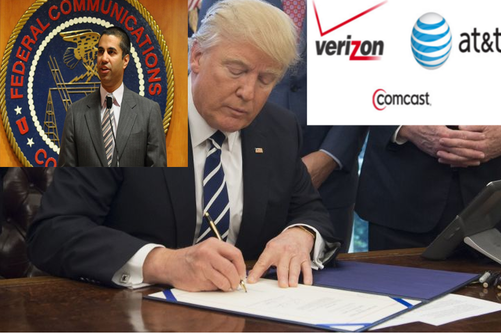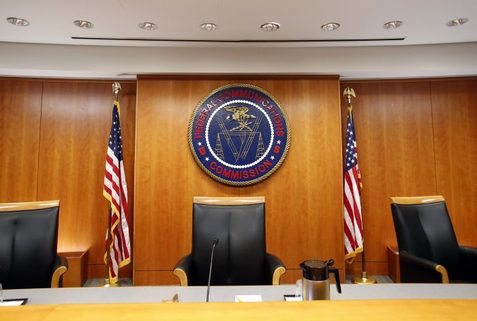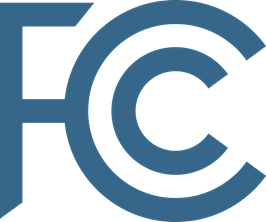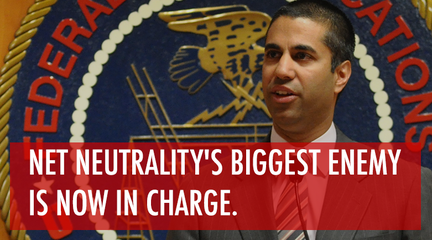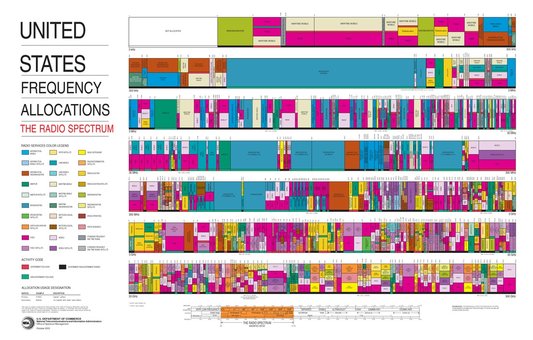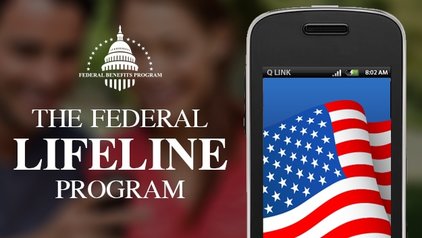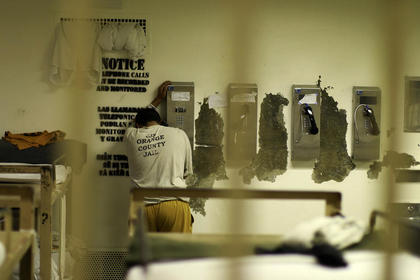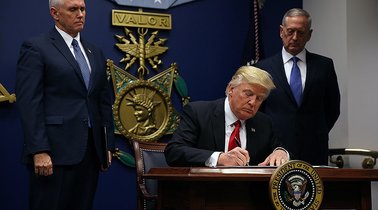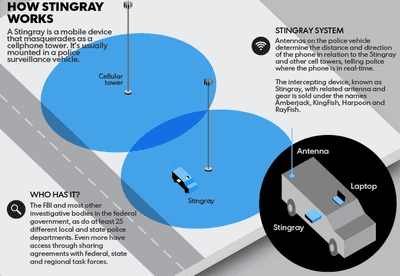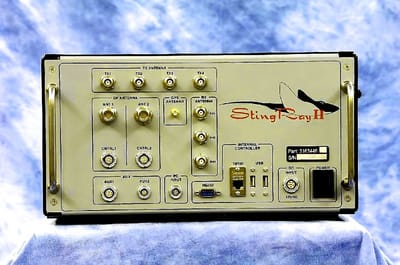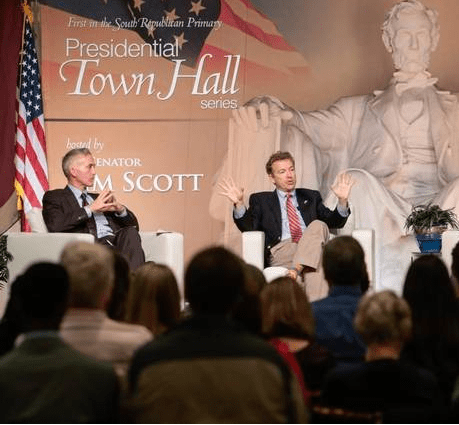0 Comments
Scrolling through news.google.com you're going to come across articles with headlines that read something like "Trump just signed your Internet privacy away". Complete fake news people, and the mainstream media knows it, they hope you trust their brand and don't look into the story any further.
This morning President Trump signed the repeal of Obama-era FCC mandated regulations aimed at forcing ISPs to acquire consent from users before selling their data to third-parties. It's not a bad thought, but it puts the ISPs at a disadvantage against companies like Google and Facebook. Google and Facebook are regulated by the Federal Trade Commission and aren't strictly regulated by them. According to The Daily Caller, Facebook and Google sell your data to third-parties such as advertisers. This is why Ajit Pai thought it was inappropriate for the FCC to regulate the ISPs and have government force them to do something. By the way, the law never even went into effect, so nothing even changed. Now you can opt-out on certain data collections with Facebook and Google, but Facebook and Google will forever hold your data. The ISPs sift through your browsing habits and take a guess on what you may be interested in and cater ads to you based on that, and that's exactly how Facebook and Google operate. It's called targeted advertising. Verizon however did get busted a couple years back when they a tracking cookie that couldn't be deleted, which tracked users for targeted advertising. No third party will know about any of your data, there will be no way a third-party could gather data from an ISP and pin-point it back to you. Now the ISPs themselves can do that, but the third parties do not have access to that. That is according to a very good BGR article that you all should read. Also according to that same BGR article, companies like Verizon and Comcast have already made statements that they don't sell their customers' individual browsing history. ISPs do what companies like Facebook and Google do, use your data to target advertise. Even the Huffington Post admits you have no privacy online, which you don't. You remember the Wikileaks "Vault 7" leaks that are currently going on, right? The leaks that show how the CIA has access to almost anything that connects to the Internet, and can spy on you whenever and wherever. You should not expect privacy online, it is almost absurd in this day and age. The majority of the US either has a Facebook account or Google account, therefore if you haven't opted out, your data is being sold. The ISPs do the same and may know a lot less about your browsing habits, and you in general than Facebook and Google. Don't forget Google has Google Chrome, the web browser, a direct funnel for data collection, and now has their fancy new AI called Google Assistant. Do your own research, the mainstream media is continuing to push a negative narrative on anything the GOP or President Trump does. Repealing "privacy regulations" may sound like a bad thing, but ask yourself why? Why does the FCC want to get rid of the rules? Ajit Pai is a clear pro-business, pro-consumer FCC chairman, and the call to end the rules reinforces that. Pai and Congress would rather see the FTC, who regulates Facebook and Google, do the same regulating on the ISPs. That's fair. All this really was, was the government deregulating the ISPs. If you're concerned about your Internet privacy, check out some software that helps better protect you, and make sure to check all your privacy settings/policies on any accounts you have.
Every 2 weeks Pulsar will give an update on what the FCC is up to. Since the last update the FCC has been busy and is making some moves.
Have you ever wondered why our smartphones don't come stock with an FM Radio app? Have you ever wondered why you have to download apps like iHeartRadio and Pandora that are connected to the Internet? Well that's because mostly all smartphones have their FM transmitters turned off. That's right, this all per Tech Times, and FCC chairman Ajit Pai wants to do something about it. The FCC is unable to force carriers/manufacturers to turn the FM transmitters on, but Pai is recommending to them that they do it. Doesn't it make sense to turn an FM transmitter on if it's going to be part of the phone? Also you wouldn't have to download Internet streaming radio apps either, you could pick up your local radio stations on your smartphone. The only downside to this is, well, traditional FM radio isn't all that great anymore thanks to Internet radio apps and satellite radio. People want many songs and the songs they like. According to that same Tech Times article, only 44% of smartphones have their FM transmitters activated. According to Slash Gear, the some of the current manufacturers (selling in US) that have their FM transmitters turned on are: HTC, LG, and Samsung. Samsung by far the largest out of the three. The FCC is planning to solve the digital divide in rural areas. According to The American Genius, The FCC has a few possibilities on the table to solve this issue. Gigabit Opportunity Zones are one of them, which give incentives to broadband providers that expand service to rural areas, and tax credits for entrepreneurs that set up networks themselves. Pai also wants to bring the wireless industry into rural areas. Here is Ajit Pai himself giving a brief overview, onFox Business, of what he wants to do and why
It's clear Pai is nothing more than a pro-consumer and pro-business FCC chairman, and that is exactly what the United States needs, especially with the pro-business Trump administration.
Pai appeared to get into a little hot water though, recently he "praised" Amazon on their Prime Now service. Pai tweeted out to @amazonprimenow after being very satisfied with the overall service, and this allegedly puts Pai in a Kellyanne Conway situation. All this according to Gizmodo, the tweet by Pai violated the same rule from the Code of Federal Regulations that Kellyanne Conway did when she promoted Ivanka Trump's brand. Which is totally an organized effort by retailers to boycott Trump brands, but now Ivanka's brand is number 1 on, guess what, Amazon. The Gizmodo article did not state Pai will be disciplined for this or not. We'll end it with the spectrum auction going on, again the FCC auctions off parts of radio spectrum so we can all enjoy our phones, computers, TVs, radio, and many other digital devices. The auction will officially end on March 30th, and it looks as if it will close with a bid total close to $20 billion, all according to Broadcasting & Cable. The FCC and its chariman Ajit Pai are gearing up to make moves and deregulate the US telecommunications industry. Business and consumers alike should all be excited for what will come out of all of this. We should expect a more business friendly environment which in turn will lead to new products and services that transfers into lower prices for the consumer. The FCC may finally bridge the digital divide, and we have the companies that can do the job. Trump's tax plans and business friendly tone is and has been incentivizing companies to do business and build factories in the US. SoftBank, Sprint's owner, is investing $50 billion in the US. Trump and Pai can make the telecom and tech industries boom, and it seems that has already started. Starting the 3rd week of the Trump Administration and the Pai led Federal Communications Commission, major things have happened regarding both. Every two weeks we'll do a report on the actions and news regarding the FCC. Within the two full weeks of Ajit Pai's FCC, some regulations have been cut, investigations dropped, and the industry has loved every minute of it. Ajit Pai has made it clear that net neutrality is going down one way or another, and he is beginning the process of doing just that. Per Dallas Business Journal, today the FCC dropped its investigation into AT&T offering "zero-rating", which lets users stream DirecTV without counting against their data. Win for both the consumer and business right there. According to Inc, Pai stated "free data plans are popular with consumers and improve competition". That statement fits Pai's overall tone. Pai has also made it clear that he intends to "fire up the weed whacker" referring to slashing regulations and policies regarding net neutrality. It's absurd to think ISPs will purposely prevent you from getting on a website or accessing apps like Netflix, the only thing preventing that will be your Internet connection or data caps. Also, isn't that competition, or plain capitalism when you charge a bandwidth intensive, content giant like Netflix extra for a faster speed? Wait until gigabit Internet arrives, then everyone will have faster speeds. It's no secret the telecommunications and media industries are opposed to net neutrality, so it's only best to let the FCC and the industries work together and do what's best for the consumer in the end. Put it this way, it'll be a win-win for consumers and businesses. The FCC also had a spectrum auction, according to Broadcasting & Cable, which lasted 34 rounds generating almost $19.4 billion in bidding revenue. This auction, according to the same article, is the FCC's second largest spectrum auction in revenue. The auction will continue this week. The FCC auctions off "space" in the electromagnetic spectrum that radio, satellites, and wireless devices depend on to function. The FCC however just put the brakes on, former chairman Tom Wheeler's, Lifeline Support for Affordable Communications according to Digital Trends. Per that same article, the program was aimed at bridging the digital divide by giving nine ISPs subsidies of $9.25 a month for each eligible customer. According to the same article there are about 13 million eligible customers. The customers that may be affected by this can still use the Federal Lifeline Program for their communications needs. Chairman Pai defended his decision according to the same Digital Trends article that, the provisions did not have "support of the majority of commissioners". Also according to The American Genius, Pai claimed $400 million has been lost annually due to "wasteful and negligent acts". In 2013 Slash Gear reported a subsidy scam within the Lifeline regarding the ISPs taking part in the program. For those who don't know, President Ronald Reagan created the Universal Service Lifeline Program, where those who pay a phone bill pay a "Universal Service" fee to fund telephone connection for lower income/rural area folks. Wheeler's program was aimed at broadband for those same folks, but as Pai stated has had a rocky roll out and has lost money, so it's being halted for the time being. It's tough, but it's absurd to think Ajit Pai doesn't want poor and rural people to have Internet access. On a different note, the FCC isn't defending their regulation on prison phone rate fees within state lines. This is all per The Verge. In 2015 the FCC went to implement rates for prison phone calls within state lines, but the prison phone industry sued the FCC for the action. Ajit Pai has stated in a letter he will not defend the agency, basically putting the case to rest, and a win for the prison phone agency and the taxpayers.
Ajit Pai is doing a lot of things in a short amount of time, sort of like President Trump, and it's having like results where people are freaking out. Just relax. Pai knows exactly what he's doing, and is more than qualified to be the Chairman of the FCC. He has winning for not just the industries in which he oversees, but winning for the consumer is his true goal. Pai has shown throughout his career, and is showing it now, he is pro-growth, pro-competition, pro-deregulation, and most importantly pro-consumer. Look forward to more good news to the market and consumer from the FCC.
You probably already know by now, that the feds track us someway somehow, but there is one way that is just plain uncomfortable and scary. Stingrays are their name, according to a Motherboard article, and Stingrays are cell tower simulators. Yes, they are pretty much fake cell phone towers.
This technology is used by almost all sectors of law enforcement, from FBI to local police departments, per a USA Today article from 2013. What the Stingrays do is, force all cell phones in that are to connect to it before rerouting them to real cell towers. By doing that, the Stingrays pick up all cellular data (Ex. location calls, messages, and IP address), and with that data law enforcemnet can track and build a profile. Invasive don't you think? Violation of the 4th Amendemnt, don't you think? The FBI went as far as trying to hide the existence of this technology from the public until they got called out in it. It didn't take long after that, and in February of 2015, the FBI publically admitted they and others use Stingrays. Per that same Motherboard article, here's FBI Director James Comey admitting it:
Comey goes on to defend its use, and it does make sense, but that's if you believe he's honest. Comey explains how the tech is used to help catch criminals and track terrorists, but what about all the other data the Stingrays collect? What about all the people who aren't criminals or terrorists that are unknowingly, without their consent, having their data sucked up by law enforcement? Why is it legal for the government to have a device that forces cell phones to connect to the Stingrays before connecting them to real cell towers?
Intrusive? Definitely. Violation of the 4th Amendment? It sure seems that way. Per Cornell:
Reading this you'd say, Stingrays clearly violate that, but notice nothing in there states digital devices such as telephones. However! In the dictionary the third noun definition of "effect" is personal belongings, and a cell phone is a personal belonging.
A quick Google search, returned many results of court cases against Stingray use, and even FCC complaints against Baltimore Police using the technology. The Baltimore Sun reported on this back in August, and the complaint was basically telling the FCC to "remind" police to follow the rules and hope to put an end to this. That's another thing, what about the FCC? They regulate the very medium Stingrays use. That same Baltimore Sun article cites a FCC spokesman Neil Grace, and Grace said "The commission expects state and local law enforcement to work through the appropriate and legal processes to use these devices." Meaning they can still use them, and the FCC probably already knew. That's said because these devices have to use spectrum to operate, unless they're opertaing on someone elses spectrum or government held spectrum. What about interference with other telecommunications in the area? Couldn't Stingrays do that if enough are operating in the same area? What about users trying to make a call or send a message, and these Stingrays drop it and/or delay it? Isn't that wrong too? Very unethical, and as stated above pretty unlawful. The FCC, if they don't know anything about Stingrays, probably could do more research and answer questions like those. Also at the end of the day, besides Congress, they have the authority to strike Stingrays down. What about the possibility of Stingrays being stolen or misused for hacking and identity theft? This technology could be devestating to people if fallen into the wrong hands. Congress though, it wasn't until yesterday when a US House Oversight Committee held a hearing on this, and found out some pretty eye opening information. One thing was The Department of Homeland Security and the Department of Justice own about 400 Stingrays. The second thing is DHS and DOJ have spent about $95 million on cell phone tracking technology, all per The Washington Times. Federal agencies have 400 devices, and who knows how many local agencies have them, unless they get them from the DOJ. Spooky and Orwellian stuff here.
The report in that same Washington Times article, concluded that Congress wants to work on limiting use and ensuring citizens rights aren't violated. This also seems like Congress is gearing up for some sort of debate, or legislation on this. Hopefully people like, Rep. Trey Gowdy (R-SC) and Sen. Rand Paul (R-KY), can gain traction in their houses and get legislation that really limits use of Stingrays.
It has been ruled that warrants are needed for obtaining the information from these devices, but there needs to a law or regulation limting the use of Stingrays in the first place. There are no local, state, or federal law against these devices, and there is no FCC regulation against them. Now to their defense, the feds tried hiding this tech for years, but surely some in all branches of government and FCC knew about it. With Republicans controlling the House, Senate, and White House, legislation against Stingrays shouldn't be hard to pass. Now, this technology does serve a critical purpose, but it violates peoples 4th Amendment rights. Remember, not every person is a suspect or a terrorist, but technology like this is necessary, just not by forcing every persons cell phone to unknowingly give all it's data to a fake cell tower. There needs to be FCC regulations, and there needs to be legislation passed by Congress and signed into law by President Trump. The law needs to look a little like "Only under suspicion of criminal or terroristic intent, can the use of cell tower simulators be warranted. All information can only be searched and devices can only be seized with a court issued warrant." That would put an end to every citizen, without their consent, having all their data sucked up by law enforcement. The FCC regulation would have to focus on spectrum use and where and when cell tower simulators could be used. There are no regulations or rules for their use. Maybe wireless carriers like Verizon, AT&T, and even those like Google, Apple, and Qualcomm could create technology that would counter Stingrays. They probably won't though, because that would land them in federal courts being sued by law enforcement agencies. Samsung would be a good candidate because they're a South Korean company, but why would they? They'd still get sued as well, and it'd lead into a bigger mess, but it's for the people at the end of the day. Liberty and privacy is what makes a open and free society great, but there are those who wish to do harm that make others, like law enforcement, violate our liberty and privacy. This technology could even fall into the wrong hands and harm people by hacking and theft. This technology needs to be regulated and legislation needs to be written to limit this and protect the American citizen. We should hope that it won't be long until action is taken, and a better way to track criminals and thwart attacks comes along. |
Categories
All
Archives
October 2020
|
||||||
